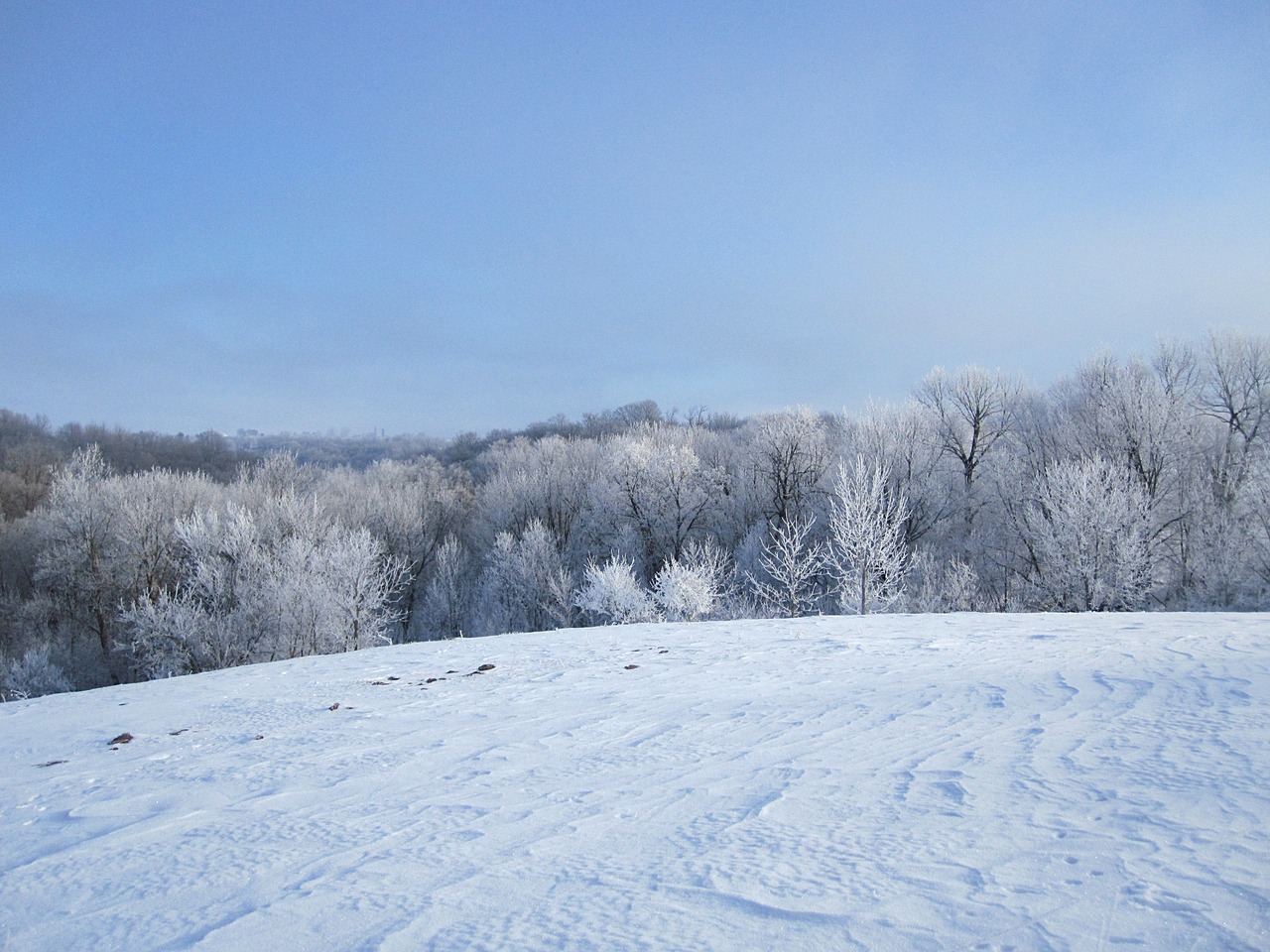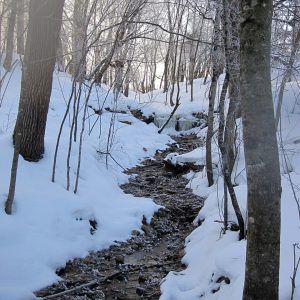Why I’m Not on Facebook: Revisited

“Our business is advertising.”
These are the words of Facebook Chief Operating Officer Sheryl Sandberg, from an interview published in the April 20, 2009 issue of BusinessWeek. She continued:
“We believe advertising needs to blend into the experience … we don’t have big banners across the site, nor do we have text-based ads that are really part of the search experience. We have ads that act like our site.”
Facebook is the world’s premier social networking website. Hundreds of millions of people use it to keep in touch with their friends, families, and associates. These are the relationships and conversations that make human life meaningful. But:
“These naturally occurring social actions now also can be paired with sponsored content and advertising to create a Social Ad.”
– Facebook Product Overview FAQ
Facebook is a privately owned company that profits by surreptitiously injecting paid advertisements into its users’ human relationships.
“You understand that we may not identify paid communications as such.”
– Facebook Statement of Rights and Responsibilities. (“By using or accessing Facebook, you agree to this Statement.”)
Research firm eMarketer predicts that advertisers will spend $605 million to reach Facebook users in 2010 — a 39% increase from 2009. Marketers are increasingly confident that the money they spend at Facebook will draw consumers to pay for their products and services.
“People treat Facebook as an authentic part of their lives, so you can be sure you are connecting with real people with real interest in your products.”
– Facebook case study in a promotional message to advertisers.
People from around the globe login to Facebook hoping to share stories of life, love, hope, and achievement. Facebook’s aim is to make them talk about commercial products instead.
“The next hundred years will be different for advertising, and it starts today. … We are announcing a new advertising system, not about broadcasting messages, about getting into the conversations between people.”
– Facebook CEO Mark Zuckerberg, at a press conference on November 6, 2007. Quoted by TechCrunch.
“[Facebook has] put the power of recommendation and referrals into a systematic environment.”
– Chamath Palihapitiya, Facebook VP-product marketing and operations. Quoted in the November 12, 2007 issue of Advertising Age.
Facebook’s entire financial model rests on the fact that its users — or more accurately its used — are willing to display products as prominently as their friends and build their identities out of advertisements. John Doe’s Facebook profile does not list his beliefs, his achievements, or his goals. It is not set up to demonstrate his individuality or creativity or personality. It simply lists, “John Doe is a fan of: [insert brands here].” This is exactly how Facebook wants it to be.
“Facebook Pages are designed for businesses and brands to efficiently interact and communicate with users. Through Pages, businesses can engage with their fans and capture new audiences virally through their fans’ recommendations to their friends.”
– Facebook Product Overview FAQ.
It doesn’t stop here. Third party companies that develop Facebook applications also sell their users to advertisers.
“March to Overrule the Court” Draws Hundreds
Demonstrators assembled outside the Wisconsin State Capitol in Madison on February 16 to urge action against the U.S. Supreme Court’s ruling in Citizens United v. Federal Election Commission, which recently struck down restrictions on the corporate financing of political advertisements. Wisconsin Public Radio reported that the rally participants made speeches and rang “liberty bells,” hoping to draw attention to their issue and gather support for a constitutional amendment to overturn the court’s decision.
| Majority Opinion | |
| Justice: | Nominated By: |
| Anthony Kennedy | Ronald Reagan (R) |
| John G. Roberts | George W. Bush (R) |
| Antonin Scalia | Ronald Reagan (R) |
| Samuel Alito | George W. Bush (R) |
| Clarence Thomas* | George H.W. Bush (R) |
| *Thomas concurred with the majority’s primary opinion but dissented on another section. | |
The Supreme Court’s ruling, announced on January 21, marks a major change in the rules of electoral politics in America. It makes it possible for private corporations — whether for-profit companies, non-profit organizations, or unions — to use their money to air political advertisements in favor of or against specific candidates in the days before an election. This kind of direct corporate involvement in politics had previously been illegal, banned by legislation going back to the Tillman Act of 1907 and including most recently the Bipartisan Campaign Reform Act of 2002, sponsored by Republican Senator John McCain of Arizona and Democratic Senator Russ Feingold of Wisconsin. Their bill passed 59-41 in the Senate, but part of the act has now been voided by the 5 to 4 Supreme Court decision.
Justice Anthony Kennedy spoke for the court’s majority by arguing that any law restricting corporations from airing political advertisements was an infringement on the freedom of speech guaranteed by the First Amendment to the U.S. Constitution. Kennedy wrote:
By taking the right to speak from some and giving it to others, the Government deprives the disadvantaged person or class of the right to use speech to strive to establish worth, standing, and respect for the speaker’s voice. … We find no basis for the proposition that, in the context of political speech, the Government may impose restrictions on certain disfavored speakers. Both history and logic lead us to this conclusion.
| Dissenting Opinion | |
| Justice: | Nominated By: |
| John P. Stevens | Gerald Ford (R) |
| Ruth Bader Ginsburg | Bill Clinton (D) |
| Stephen Breyer | Bill Clinton (D) |
| Sonia Sotomayer | Barack Obama (D) |
Meanwhile, dissenting Justice John Paul Stevens disagreed with the premise that a corporation constituted a “disadvantaged person.” Speaking for the court’s minority, he wrote:
The fact that corporations are different from human beings might seem to need no elaboration, except that the majority opinion almost completely elides it. … It might also be added that corporations have no consciences, no beliefs, no feelings, no thoughts, no desires. Corporations help structure and facilitate the activities of human beings, to be sure, and their “personhood” often serves as a useful legal fiction. But they are not themselves members of “We the People” by whom and for whom our Constitution was established.
Madison’s demonstrators agreed with those words. Some carried signs with slogans like “Abolish Corporate Personhood” and “Overrule the Court!” I applaud their position. Corporations are not humans. They exist only on paper as tools created by people to achieve some goal. The individual rights of the people involved in corporations — shareholders, directors and employees — were never in question. They have always held the right to speak as individual citizens. The Supreme Court’s ruling, as I see it, now gives corporate executives twice the rights that other people hold: their own unalienable right to speak as individuals, plus the right to speak through the corporations they control using those corporations’ money and power. Corporations hold immense concentrations of wealth, and because they are often structured simply to generate more, their interests are self-serving. Wealthy multinational corporations can easily outspend real individuals in a race to promote their profit-driven political agendas. Far from enhancing free speech, the court’s ruling will help powerful corporations drown out the voices of actual people with real human needs.
Memories of Summer
I went for a walk this morning. It was -6° Fahrenheit. As I’ve stated before, I like the cold. Even so, I couldn’t help but think back longingly to summer as I hurried down State Street, my fingers turning a rather pretty shade of blue. Summer was just a few months ago, but it seems as though it was a different world. We dressed differently, we spent our time differently, we saw entirely different scenes outside our doors. I took the photograph above on August 31. The pretty scene disguises a greater adventure, for to get that shot I had to hike a few miles, climb some tall rocks, and balance awkwardly with one foot on a steep slope, holding my camera overhead at just the right angle to cut past the weeds towards the lovely Asters you see. I realized later that these flowers were everywhere, and that I could have just taken a picture of them in someone’s flowerbed — but summer wouldn’t have been nearly as fun if I’d just stayed home.
The same thought applies to winter. It is easy on these frigid days of January to think back fondly to August, but I can’t honestly say that winter is any less beautiful. Indeed, some places that are rather ugly in summer become quite aesthetic under a freshly fallen layer of snow. I could never spend winter hiding indoors waiting for the warm weather to return, because I would miss too much. Going through winter without admiring the ice and frost would be like passing the summer without appreciating flowers or thunderstorms. The joy of living in a place like Wisconsin is that we get to pass through all these remarkable worlds just by staying put.
A Frosty Morning in January

Merry Christmas

It has been a few days since my last post. When I wrote before, we were still savoring the last weeks of a cool Wisconsin summer. Now we’re wading through a December mix of rain and snow, which has turned our White Christmas into a slushy, icy mess. The Christmas Tree in the front yard seems to be surviving all the same — and that’s good, because it still has a lot of growing to do. I feel the same way about this blog.
Acceity lives, despite my lack of attention to it. Indeed, visitors have been trickling in daily from search engines, and there were even one or two new comments while I was away. It is good to know that my work is useful to a few people, occasionally. That is enough reason to press on, and now that I have an entire month free from school and other tedious obligations, I plan to post quite a lot in the coming weeks. There is a whole world to talk about, so I hope you’ll join me here for the impending discussions. In the meantime, have a Merry Christmas!
The Oak Tree
I took a picture of the Oak Tree…

…so you can join me in the shade.
Explosive Nonviolence: Two Bombings in 1970

In August, 1970, two unrelated explosions tore through quiet nights on different sides of the globe. Neither took place in a war zone. Each was carried out by people supposedly dedicated to non-violence, but each group felt that nothing less than an explosion could achieve its goals. One explosion did what its detonators hoped. One did not. Both are largely forgotten.
The first explosion took place in Iceland. Government officials had embarked on a development project for the northern Þingeyjarsýsla region that involved building a dam across the Laxá River. Local residents were dismayed. They stood to lose their land, livelihood, and countryside beneath the dam’s reservoir. The environment was also at stake. The Laxá was one of Iceland’s best fishing streams, and its name literally means “Salmon River.” A dam would have blocked the salmon migration and irrevocably changed the river’s ecology. Quickly, farmers and fishermen united in a legal battle to block the dam. Their efforts were fruitless. Construction continued, and it seemed that only one option remained.
Late on the night of August 7, 1970, over two-hundred local residents gathered at the river. They dug holes in the dam’s foundations, filled them with dynamite, and, ensuring that no people or animals were in sight, blew the dam to pieces. The following day, everyone in the community called the police to claim responsibility for the incident. Hearings were held, sixty-five people were convicted, but their fines were overturned by Iceland’s Supreme Court. One conspirator was ultimately elected to parliament. The dam was never rebuilt.
The second explosion occurred in the United States. Students at the University of Wisconsin-Madison had been protesting the United States’ war in Vietnam for several years. Protests had started nonviolently, but police had responded brutally at some demonstrations, beating students. By the end of the decade, the FBI had even infiltrated student organizations. Many protests centered on the Army Mathematics Research Center (AMRC), which occupied three floors of Sterling Hall on the UW-Madison campus. Students suspected AMRC of conducting research to further the Vietnam War, and many wanted it closed. The University of Wisconsin, however, had no intention of banishing the federally funded research and the respected mathematicians it brought to Madison. To a few war protesters, it seemed that only one option remained.
Before dawn on August 24, 1970, four anti-war activists detonated a homemade one ton bomb in a van parked outside Sterling Hall. They set off the explosion at 3:42 AM, hoping that the building would be empty, but it was not. A post-doctorate physics researcher with no connection to AMRC was killed, four others were injured, and over $2.1 million worth of property damage was done, mostly to the UW physics department on Sterling Hall’s lower floors. Upstairs, the Army Mathematics Research Center escaped with little damage. The four perpetrators fled, three were eventually caught and sentenced to short prison terms, the fourth was never apprehended. The Vietnam War continued for five more years.
So it happened that two nonviolent activist groups turned to explosive tactics in August 1970. The Laxá River campaign succeeded in its agenda. The Sterling Hall bombing did not. It is tragic that even in two established democracies like Iceland and the United States, underprivileged groups sometimes see no means but violence to make themselves heard. It is even worse in recent democracies—just look at this month’s headlines about explosions in Baghdad. Spreading democracy to Iraq at the point of a gun is no way to get people in there to settle their differences peacefully. Indeed, using violence to advance any nonviolent agenda always leads to terrible risks. As the Sterling Hall bombing made clear, even violence that purpotrators consider well-intended is prone to unintended consequences. Moreover, the unpredictability of violence can render it useless at achieving intended results. The Sterling Hall bombers should have known they couldn’t end a war by blowing something up. Wars end with treaties, not explosions.
Why I’m Not on Facebook
It seems like everyone is on Facebook. Almost everyone. I’m one of the dwindling holdouts, a child of the web who builds computers and designs websites but who doesn’t see the attraction of jumping on the social networking bandwagon. I’m not the only holdout. The media has been quick to pounce on Facebook and similar sites over issues like lost privacy and cyber-stalking, and while I think these issues are little more than network ratings fodder, others have taken them to heart. My grievance with Facebook is more fundamental, not at heart a problem with what Facebook does, but a problem with what Facebook is—a monolithic private company that millions of people have chosen to facilitate the most important thing in their lives: their relationships.
“We are building Facebook to make the world more open and transparent,” proclaims the Facebook Principles page. “Facebook,” it continues, “promotes openness and transparency by giving individuals greater power to share and connect.” The page continues to set forth ten principles, which are in truth nothing but marketing buzzwords struck into idealistic sentences that reveal almost nothing about what commitments or services Facebook actually provides. What does Facebook provide? Contradictions, certainly. Click over to the Privacy Policy, also titled Facebook Principles, and you’ll see that instead of ten principles, “Facebook follows two core principles” introduced with the sentence, “We built Facebook to make it easy to share information with your friends and people around you.” This is a little less idealistic than the last page, but more immediately helpful. Facebook is a service that allows people to share information with the people around them.
People, or so I recall, have mouths for just this purpose.
Little Things
I don’t usually have an issue with not being able to see the forest for the trees. This afternoon, though, even trees seemed hard to find—I was far too preoccupied with the branches. As I walked into the valley, little things, little ordinary things, kept stealing my attention. Here are a few big pictures of the little things I encountered.
I. Young Pears Still Growing on the Tree
It’ll be a fruitful harvest, in every sense of the word. And what could be better to accompany my favorite artisan cheeses?

II. Green Acorns at the Foot of an Oak Tree
I wonder if they fell here during one of the storms we had this week?

III. Yellow Mushrooms in the Moss
I think these are Cantharellus minor—meaning they’re edible—but I don’t trust my mushroom-identifying skills well enough to taste.

Zooming in on the small stuff was a refreshing change from the panoramas that surround me at my home atop the ridge, and when I did make my way back up the hill, I realized that upon drawing back from these close-ups, the big view seems even larger. Every grand vista from the top of my hill is made up of a million little scenes like these.








